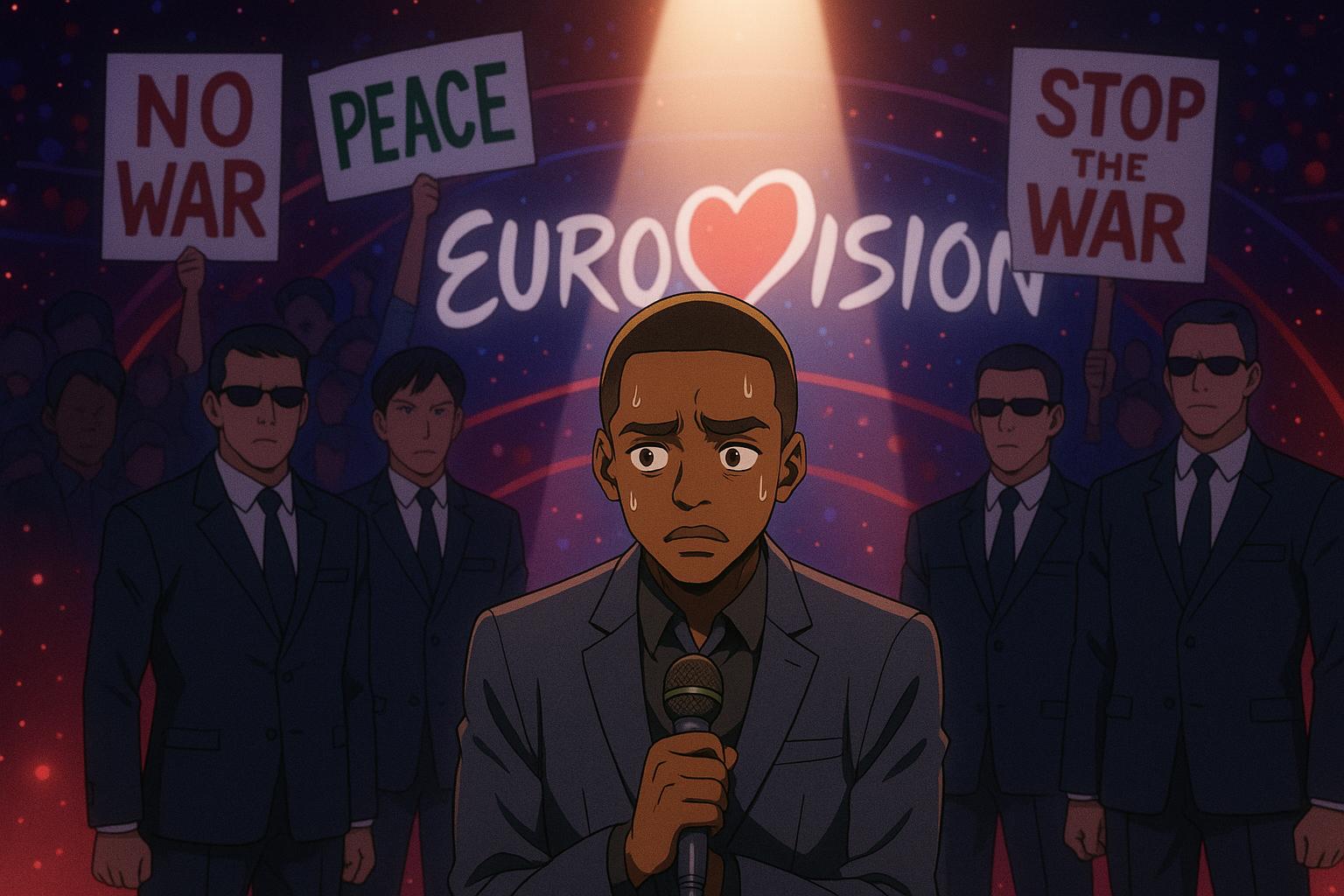Mystery surrounds the sudden withdrawal of Ncuti Gatwa from the UK’s Eurovision results showcase, which is set to take place tonight in Basel, Switzerland. The 32-year-old actor, known for his role in Doctor Who, was initially slated to deliver the UK's jury scores. However, just 48 hours before the event, Gatwa stepped aside, citing "unforeseen circumstances." The timing of his withdrawal has raised eyebrows, particularly as it came shortly after Israel qualified for the grand final, intensifying ongoing debates surrounding the country’s participation in the contest amid rising tensions related to the conflict in Gaza.
The BBC confirmed Gatwa’s absence, and singer Sophie Ellis-Bextor has been appointed to take his place. This development follows a day filled with demonstrations during rehearsals, where protesters supporting Palestine disrupted Israel’s representative, Yuval Raphael, who is also a survivor of the Hamas terror attack that occurred earlier this month. Organisers faced criticism over how peacefully they could manage the event, leading to heightened security measures, including the banning of bags and the execution of thorough security protocols to prevent interference.
The controversy surrounding Israel's involvement in Eurovision this year has been escalating, with anti-Israel protests gaining traction ahead of the finals. As demonstrated during the rehearsals, audience members attempted to express their dissent by disrupting performances. In response, the European Broadcasting Union (EBU) has established stricter measures to ensure the event remains apolitical, despite the ongoing protests that have sparked debates about the rationale behind Israel's participation, especially after the EBU banned Russia following its invasion of Ukraine.
Calls for Israel’s exclusion from the contest have gained significant momentum, with over 70 former Eurovision contestants, including the UK's 2023 entrant, Mae Muller, signing an open letter advocating for reconsideration of Israel's inclusion. Notably, last year's winner, Nemo, expressed that "Israel’s actions are fundamentally at odds with the values Eurovision claims to uphold." Meanwhile, the EBU has reiterated that its decision to allow Israel to compete stems from an intention to maintain a non-political stance during the event, further complicating discussions about the nature of cultural showcases in the face of pressing global issues.
Expectations for the contest remain high, despite the backdrop of protests. More than 300,000 fans are anticipated to arrive in Basel for what is a major cultural event. Yet, the atmosphere will undoubtedly be clouded by the ongoing turmoil in the region, with heightened security concerns in light of the geopolitical conflicts that permeate the competition.
As the contest airs live tonight on BBC One, with Girl band Remember Monday representing the UK, the spectre of social and political tensions looms large over the event. The outcome and public reception of the performances may yet further illuminate the interplay between politics and artistic expression in a platform as visible as Eurovision.
Reference Map
- Core focus on Ncuti Gatwa's withdrawal and its implications.
- Details on the protests against Israel's participation and security measures enforced.
- Quote from last year's winner regarding Israel's actions and Eurovision values.
- Context of Israel's qualification and Deutsche Broadcasting Union's stance.
- Public dynamics surrounding the Eurovision event and contest participation risks.
Source: Noah Wire Services
